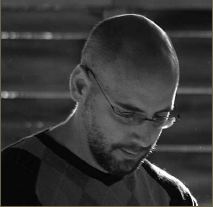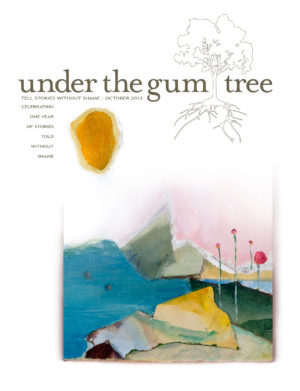James Stafford

This Sacramento-based writer is the creator of Why It Matters (jamesostafford.com), a popular music/memoir blog enjoyed by people in more than 100 countries. He writes both fiction and nonfiction, focusing on how music underscores our lives. The key to cracking the elusive Greenland market escapes him, but he’s trying.
“I’ll leave it to The Eagles, the critics and your Googling abilities to define what “Hotel California” is about. The truth of any work of art is that it’s personal, it’s about whatever you take away from it. Art is a process of encoding and decoding. Your experience shapes how you decode those symbols—those words and images and tones.”
So now you’ve seen what he can do, but (practically) every writer has a method behind their madness. We’ve had the honor of learning about his method and have the privilege of sharing it with you.
When and why did you start writing?
I started writing after reading David Copperfield around age ten. I thought “if Dickens can fictionalize his life then so can I.” My version was a bit shorter than his: my fictionalized autobiography only ran two typed pages.
What do you enjoy most about writing?
What I enjoy most is what I refer to as “making a good thing.” Like any other artistic pursuit, the grunt work can be painful, boring, difficult, etc., but occasionally when it’s over one can hold up the end product and say, “Hey, look! I made a good thing!”
Who/ what is your biggest inspiration when you write?
That really depends on what I’m writing. I like having some tangible piece of what I’m working on around. For example, if I’m working on a story in which a boy collects baseball cards, I like to have a few on my desk to smell, touch, look at. Perhaps I lack imagination, but those sorts of fetish objects are helpful.
Do you have a writing schedule?
Absolutely. I have dedicated days and times when I work on specific things in specific ways, i.e., this time is dedicated to brainstorming/free-writing, this time is dedicated to editing, etc.
What is the hardest part of writing for you?
The hardest thing is when I think I have an idea for a story and I just can’t get it cooking. I beat on it and beat on it, demanding that my idea is the right one, until finally I give up and let the story be whatever it’s going to be. So I guess maybe a more concise answer to your question is that the hardest part is getting it out of the way and letting the stories be what they choose to be.
How long does it usually take you to finish a story?
This is a difficult question. People tend to omit the time spent thinking about a story — days, months, years — before ever committing it to paper. And then of course there’s the question of what “finished” really means. “Finished” is a paralyzing standard.
Are you working on anything now?
For the last couple of years I’ve been writing short pieces based on memories triggered by particular pieces of music. What do you think of when you hear “Hotel California?” Maybe you think about the mariachi band at your favorite restaurant playing their version. Perhaps you remember where you were the first time you heard it. Me? I remember watching my childhood hero drown.
How many rejections did you get before you had something published? How did you deal with them?
I think I received around ten rejections before my first piece was published, so I was lucky in that regard. Rejection is difficult, especially when one isn’t dealing with copious amounts of self-esteem in the first place. I tried all of the prescribed methods for dealing with rejection letters — considering each one a badge of honor, finding encouragement in a handwritten note or non-boilerplate letter, etc.
How did you celebrate when you got your first acceptance?
I didn’t, as I didn’t even know I’d been accepted. One afternoon a magazine appeared in the mail. I didn’t remember ordering it, but it looked interesting enough so I thumbed through it. When I saw my short story I did a double take, and then I spent the rest of the evening worrying about all of the things I should’ve done differently.
Do you prefer typing or pencil to paper when you write?
Pen to paper, absolutely. I just can’t get the voodoo working on a keyboard, and I don’t know why. I wish I could, though — transcribing handwritten notes is a bit tedious.
What do you do when you’re not writing?
When I’m not writing I’m working on the business of writing, which it turns out is a much bigger time drain. Creating a story is great, but the end result is kind of like that tree in the forest — if no one reads it does it make a sound? So in reality being a writer means lots of hours building an audience, which can mean anything from working social media to brainstorming marketing ideas to submitting work to magazines like Under the Gum Tree in hopes of attracting a new reader or two.
Who is your favorite author?
Can I cheat and list more than one? I admire Henry Miller, John Fante, and Charles Bukowski for their candor; Hemingway for his efficiency; and Mark Twain and Kurt Vonnegut for their kindness and humanity.
What are some of your favorite books?
Bukowski’s Ham on Rye is the greatest memoir ever. Fante’s Brotherhood of the Grape is brilliant. Hesse’s Siddhartha, Miller’s Rosy Crucifixion, particularly Sexus. A Confederacy of Dunces, On the Road…
Do you have any advice for other writers?
This is a tough one. Every piece of writing advice I’ve ever been offered I’ve ignored only to find out that they were all good. All of those things you’ve been told to do — write often, keep a schedule, read — they’re all true and they will all help you.
Is there anything else you would like to share with the readers?
I’d love for all of you to drop by Why It Matters (www.jamesostafford.com) for a visit. You can read my little musical memories, see some of my efforts at building an audience, and most importantly have a laugh at some really bad album covers. Tell them James sent you and get absolutely nothing off the already free admission!

